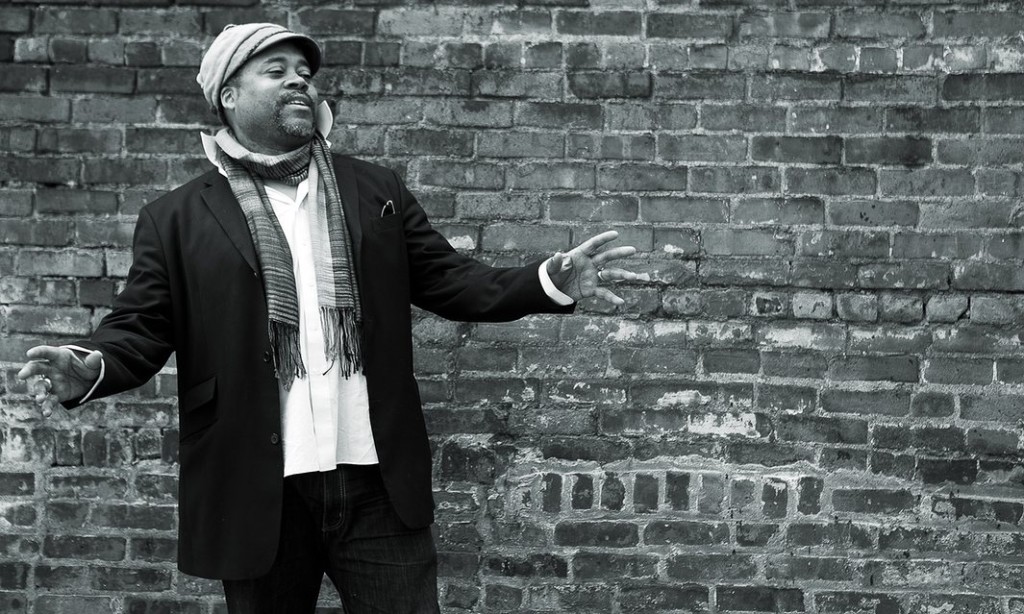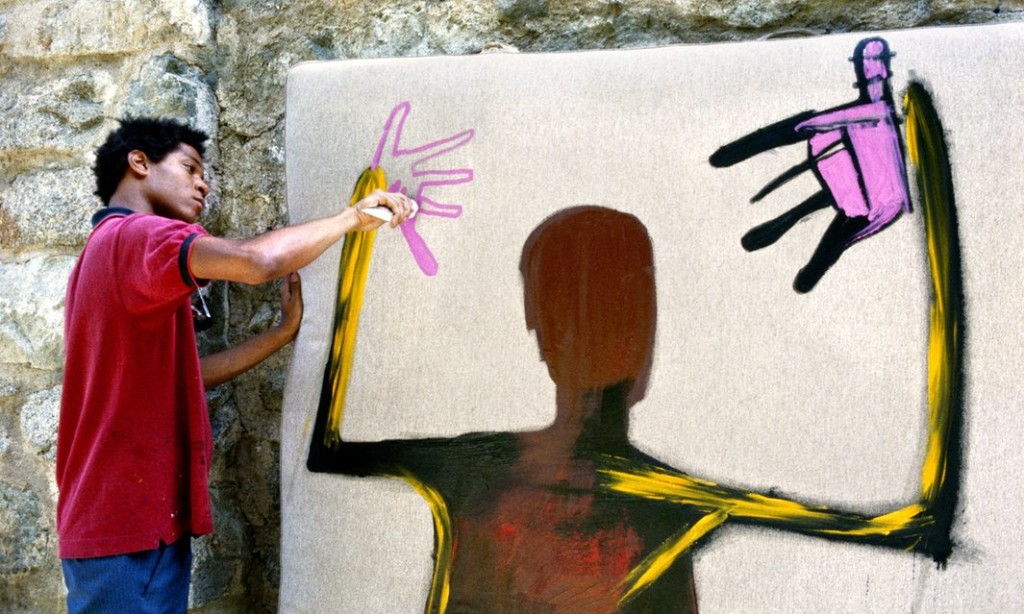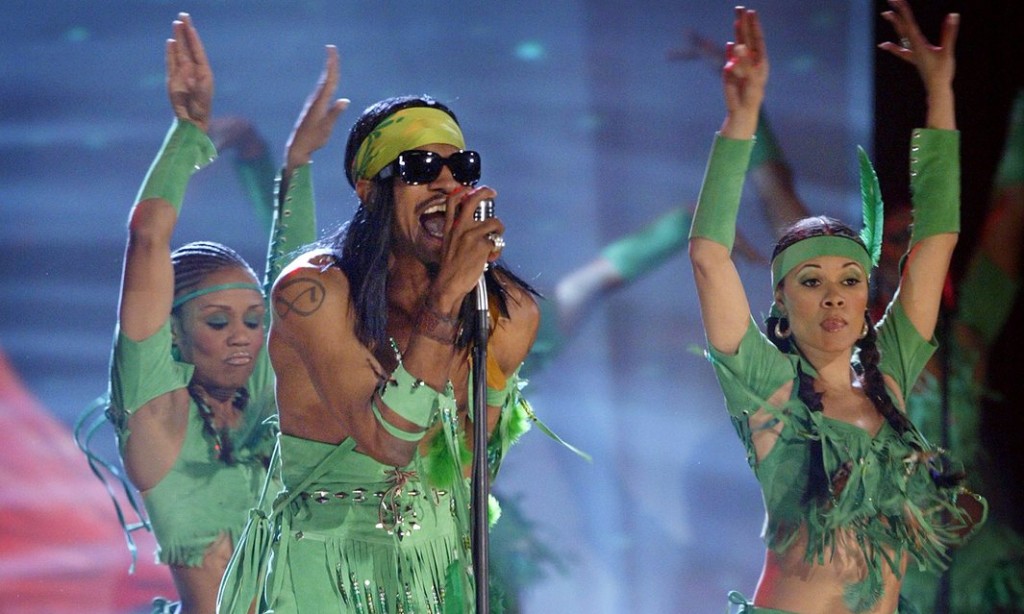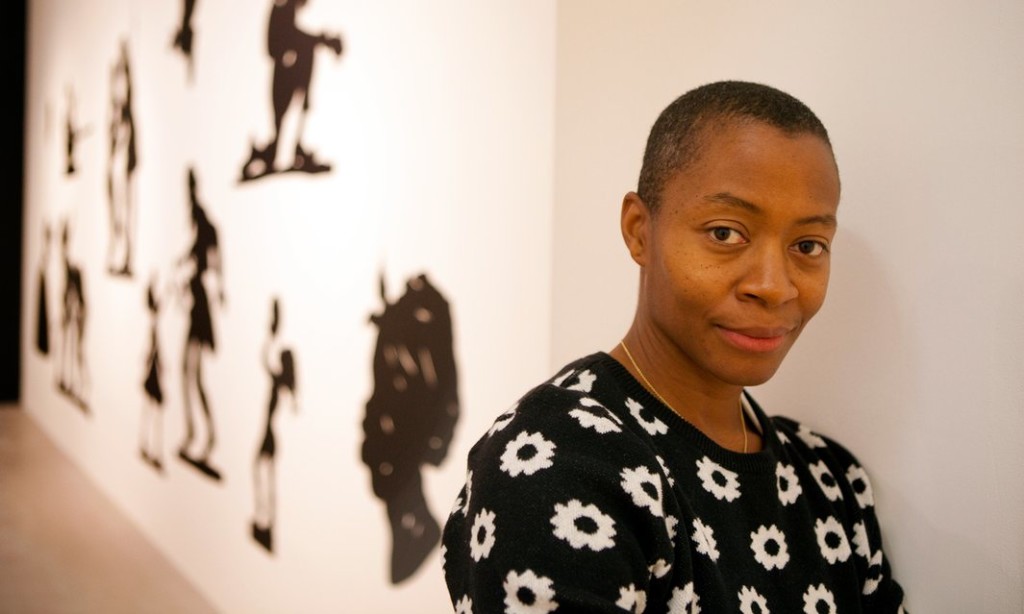Greg Tate: the flyboy
goes back to the future
From Michael Jackson’s nose to
the righteousness of
Jean-Michel Basquiat,
Tate has been analysing culture
for over 30 mind-expanding years.
He talks philosophy, Afrofuturism,
and how black artists defy boundaries
In his 1987 Village Voice essay I’m White! What’s Wrong with Michael Jackson, Greg Tate wrote there was “proof that God don’t like ugly” since “the title of Michael’s new LP, Bad accurately describes the contents in standard English”. The searing critique was not just about the music, but about Jackson’s new appearance, unveiled on the album’s cover and in the Martin Scorsese-directed video. There was Jackson with a narrow pointy nose and pale skin, a look Tate unforgettably described as “decolorized flesh – a buppy version of Dorian Gray, a blaxploitation nightmare that offers this moral: stop, the face you save may be your own”.
Still, as much as he disliked Bad for being “as songless as Thriller is songful”, Tate’s essay is also a backhanded love letter to what is still the bestselling album of all time. “No amount of disgust for Jackson’s even newer face (cleft in the chin) takes anything away from Thriller,” Tate wrote. “Thriller is a record that doesn’t even know how to stop giving pleasure.”
Tate and Jackson were the same age, and in 1987 the critic – as adept at exploring the black experience in America in an essay as Jackson was at exploring it in a song – had recently been hired as a staff writer for the Voice by legendary rock critic Robert Christgau after contributing for a few years. “Digging into our black nationalist bag,” as he put it, Tate wrote angrily about Jackson, but not without the sympathy of context: “Jackson emerges a casualty of America’s ongoing race war – another Negro gone mad because his mirror reports that his face does not conform to the Nordic ideal.”
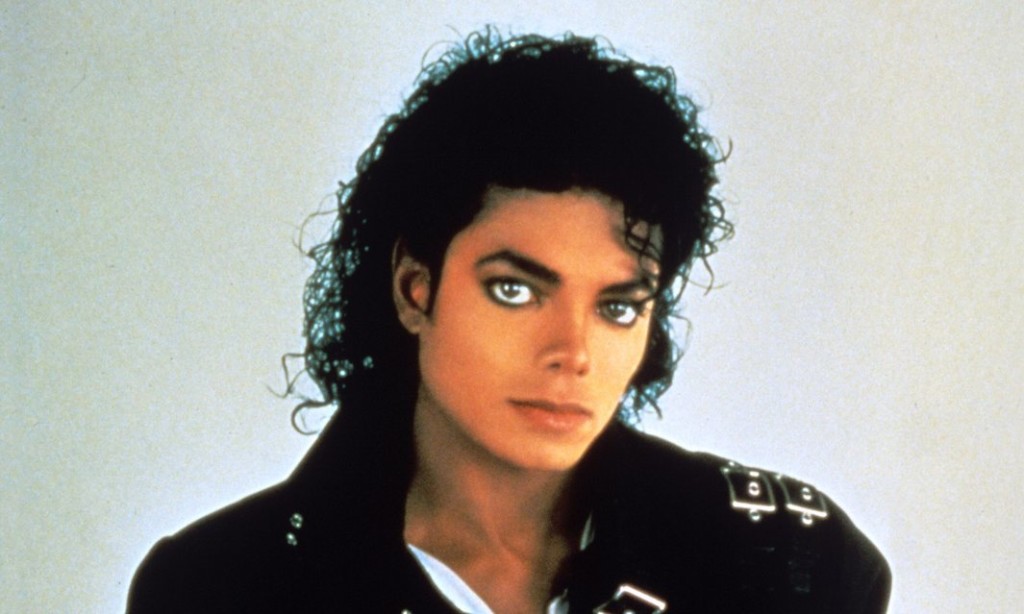
Michael Jackson in his Bad years: ‘A buppy version of Dorian Gray.’ Photograph: Sipa Press/Rex Features
Two decades later, a few years after leaving the Voice as a staff writer, Tate returned to write The Man in Our Mirror, the definitive Michael Jackson obituary. “The absolute irony of all the jokes and speculation about Michael trying to turn into a European woman is that after James Brown, his music (and his dancing) represent the epitome – one of the mightiest peaks – of what we call black music,” Tate declared. “Anyone whose racial-litmus-test challenge to Michael came with a rhythm-and-blues battle royale event would have gotten their ass royally waxed.”
This masterful essay is anthologized in Tate’s new book Flyboy 2: The Greg Tate Reader, a collection of Tate’s writings on black artists from John Coltrane and Jimi Hendrix to Spike Lee and Kara Walker. In it, Tate reflects not just the breadth and depth of his range, but also the richness of his dialogue with fellow black writers. During his tenure at the Voice, the likes of Thulani Davis, Stanley Crouch, Ta-Nehisi Coates, Hilton Als, Joan Morgan and Nelson George passed through, and he writes in the introduction that the “Voice meant I could be me, be free and not what somebody’s style manual said I had to be”.
The title of Tate’s first book, Flyboy in the Buttermilk: Essays on Contemporary America, is a playful ode to Jean-Michel Basquiat, whose ability to foreground black people in a world which wants to erase them made his “work not just ingenious, but righteous and profound”. Tate briefly met Basquiat just one time in person, when legendary graffiti artist and hip-hop prime mover “Fab Five Freddy invited me to a party over at his house” in the mid-80s.
Tate meets me in a coffee shop in New York’s West Village, colorfully dressed a straw hat, salmon shirt and shorts, and bright yellow shoes. Carrying a guitar and equipment for a gig later that day with his band Burnt Sugar Archestra, his broad smile and warm eyes make him seem like a youngin’ who just “first fell in love with the Village”, as he did in the 1980s after going to Howard.
Tate’s first story for the Voice as a freelancer was about jazz saxophonist Pharoah Sanders. His first cover was about Nigerian singer King Sunny Adé. Right from the start his prose was entirely free of cliches. Even now, Tate is constantly forming new idiomatic expressions which are perplexing in their ability to be simultaneously original and yet feel as familiar as something your auntie might have told you as a child.
For instance, Tate writes of Outkast that “hip-hop is now the Kmart of the American id, where our dark and unconscious shit turns into shinola [and] we need its democratic ideals to be messy”. He described Andre 3000 as “latest link in a lengthy chain of supersoulful African American eccentrics stretching from Charley Patton and Jelly Roll Morton to Andre’s guiding light in eclectic negritude, Prince. All folk who wielded weirdness like a scalpel, albeit one that carves order out of the cosmic slop of their free-associative funky imaginations.”
Our talk turns to philosophy and the book Nomadology: the War Machine by Gilles Deleuze and Felix Guattari comes up, which Tate admired for its “sense of cultural solidarity expressed without necessarily being dependent upon property or a standing army”, of understanding “that one’s sense of power is being able to improvise existence with whatever is at hand”. But Tate’s real philosophical influences were jazz musicians, black female literary writers (Toni Morrison, Alice Walker, Thulani Davis, Ai and Ntozake Shange) and “a number of black male writers who were working in experimental fiction and poetry” (Ishmael Reed, Clarence Major, Charles Wright, Calvin Hernton).
“There were all these artists working in interdisciplinary ways,” Tate tells me, making “a link between an experimental black literature and experimental black music [like] Miles Davis and Art Ensemble of Chicago”. These figures, Tate says, helped to foster “the whole notion of being a black artist as being a person without boundaries, being a person who was making these connections between politics and metaphysics.”
Interviewed in the 1992 essay Black to the Future in which Mark Dery coins the term Afrofuturism (a way of thinking about race as a technology in relation to culture, science and metaphysics), Tate is seen as a godfather of that school of black thought. But while he is deeply interested in how Afrofuturism and its converse, Afropessimism, “reveal the precarious position of blackness within western society and the recurring sense of danger mediated by a will to progress,” he finds the term Afrofuturism a little “corny”.
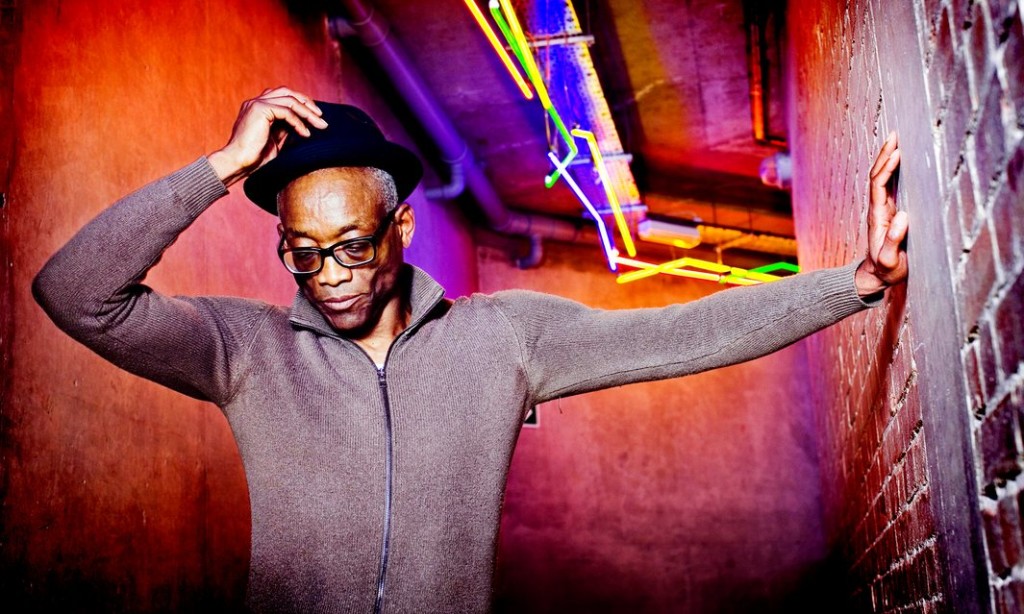
The choreographer Bill T Jones, another artist Tate examines. Photograph: Felix Clay for the Guardian
“My comrade in arms, [cinematographer] Arthur Jafa, we always thought of ‘black science fiction’,” he explains. “The thing was, when we said it, it didn’t just reference literature or films. It was just life. We would just be walking around the streets in Washington, and we’d see things and say: ‘Now, that’s black science fiction right there.’”
The fact that Flyboy 2 is published by the academic Duke University Press reflects how black popular culture studies are being taken seriously in the academy, and how “blackademic” professors such as Brittany Cooper and Marc Lamont Hill can write about Prince, presidential politics or prisons alike. Black writers who flow between these subjects owe a debt to “oldhead” Tate, who has been making black prose philosophically portable between different spheres long before black Twitter did.
Indeed, from his early music reviews in the 80s to his essay Top 10 Reasons Why So Few Black Folk Were Down to Occupy Wall Street Plus Four More, Tate has helped foster a shift in how blackness is seen in the world. He’s also been asserting for decades that “Our Black lives, creative acts, political plots, and trans-African legacies been mattering here for a good long while” in every domain.
While philosophy is explored in essays on visual artists (Kehinde Wiley, Kara Walker), choreographers (Bill T Jones), comics (Richard Pryor) and musical artists (Björk, Azealia, Miles, Gil and Michael), Tate’s existential exploration really lies in the deployment of his language and vernacular. His linguistic phrasing is relentlessly his own, delightfully challenging readers to think in new ways. And his language choices are inclined, as he puts it, to “incite a riot among those copydesks and style-book fetishists who pretend that lowercasing Black is sensible and not white-power jockeying taken to the grammatical level.”
But though he is associated with jazz, soul and all things Black, there is nothing remotely limited in the scope of his new book. “Race, generally equated with politics, is really in the American context a branch of metaphysics, aesthetics, and anthropology,” he writes in his introduction, “representing a far broader body of concerns where you can readily leapfrog between sex, death, religion, criminality, linguistics, music, genetics, athletics, fashion, medicine, you name it, in the name of African liberation and self- determination.” Whether you are new to his work or a longtime reader, the universe of Black magic lovingly curated in Flyboy 2 will do your soul good.
>via: https://www.theguardian.com/books/2016/aug/20/greg-tate-flyboy-back-to-the-future


